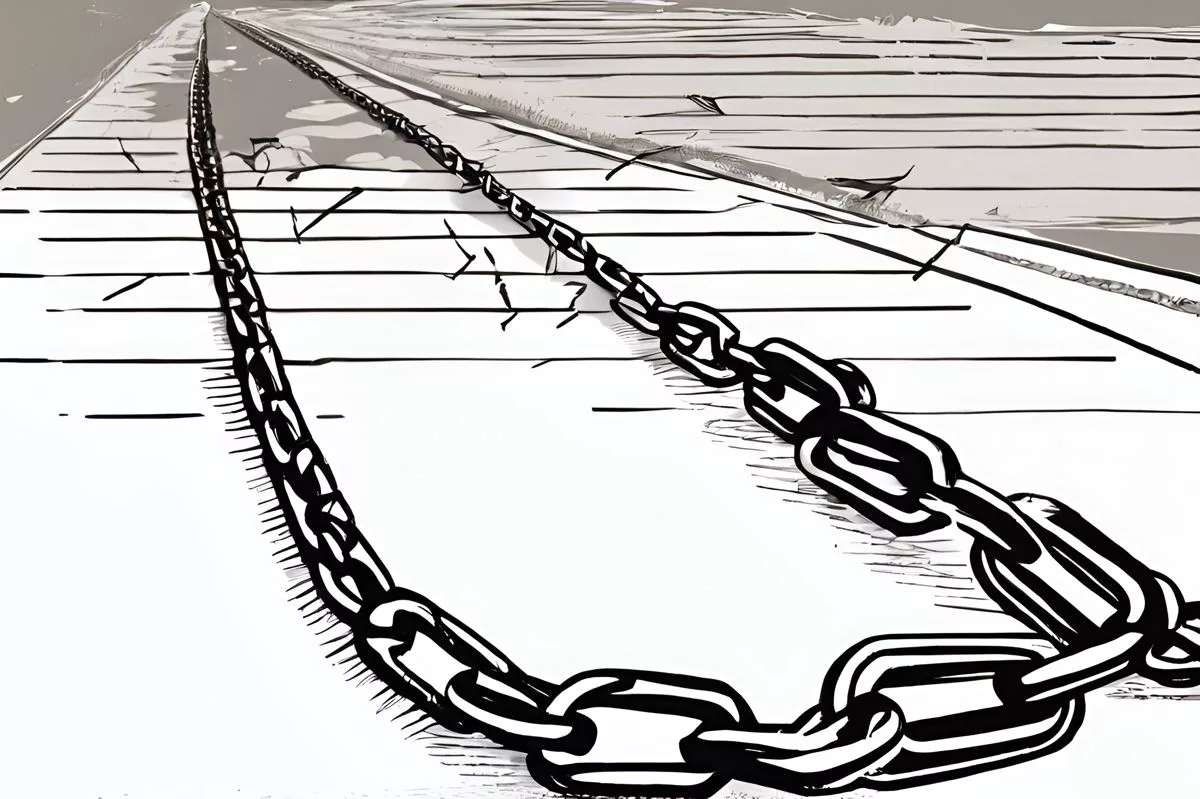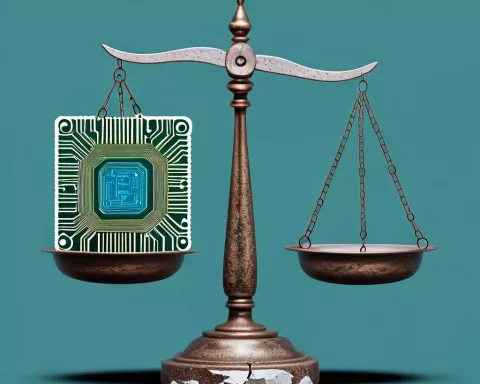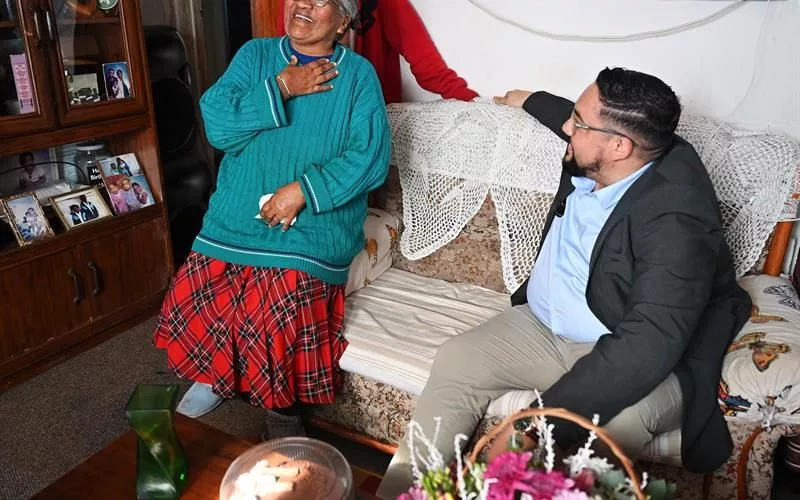Caster Mokgadi Semenya is an Olympic champion who has faced unfair restrictions related to testosterone levels in sports, sparking conversations on equality and fairness in sports and drawing attention from the European Court of Human Rights. Despite this, Semenya has received unwavering support from her home country, South Africa, as they strive for justice and equality. The ECHR’s Grand Chamber is due to review the issue raised by the Swiss government regarding the ECHR’s 2023 decision in a hearing scheduled for Wednesday, 15 May 2024, and Semenya’s hardships serve as a stark reminder of the ongoing battle for equality in sports and society at large.
Who is Caster Semenya and why has her situation garnered global attention?
Caster Mokgadi Semenya is a double champion of the 800m Olympic event who has faced contentious restrictions related to testosterone levels in sports. Her predicament has sparked conversations on equality and fairness in sports and drawn attention from the European Court of Human Rights. Despite facing unfair obstacles, Semenya has received unwavering support from her home country, South Africa, as they strive for justice and equality.
Challenging the Conventional Norms
In a society that habitually categorizes individuals into well-defined, normalized roles, it requires audacity and persistence to defy the conventional norms. One such indomitable and motivating personality in the world of global sports is Caster Mokgadi Semenya, the distinguished double champion of the 800m Olympic event. It’s unfortunate that she’s currently not in the running, owing to the contentious restrictions related to testosterone levels in sportspersons.
Semenya’s predicament has resonated around the globe, drawing attention and initiating dialogues on equality and fairness in the domain of sports. The European Court of Human Rights (ECHR) in France, in the previous year, confirmed that the implementation of testosterone constraints had infringed Semenya’s human rights. This is a significant and encouraging acknowledgement of the inherent dignity and worth that every person possesses.
Unfaltering Support for Semenya
As Semenya prepares for her re-entry into the ECHR’s Grand Chamber, South Africa’s Department of Sport, Arts and Culture (DSAC) has publicly expressed its unwavering support for her. Dr Cynthia Khumalo, the DSAC’s Interim Director-General, articulated the department’s resolve to promote fairness and equality in sports on a recent Wednesday. This advocacy resonates deeply as the country celebrates 30 years of democracy and reinforces the notion that every sportsperson should be entitled to participate, free from unfair impediments and bias.
In further support of Semenya, the national government of South Africa has joined hands with the Commission for Gender Equality (CGE), Norton Rose Fulbright (NRF), Probono.org, and other stakeholders. This collective endeavour affirms the nation’s determination to fight for justice and equality.
Anticipating Crucial ECHR Decision
The ECHR’s Grand Chamber is due to review the issue raised by the Swiss government regarding the ECHR’s 2023 decision in a hearing scheduled for Wednesday, 15 May 2024. The DSAC has recognized this hearing and its potential worldwide ramifications for Semenya and other athletes.
Semenya’s career has been riddled with unfair bias, a difficulty faced by numerous athletes with Differences in Sex Development (DSD). World Athletics’ 2019 regulations have proven to be hurdles for these athletes, preventing them from participating in their preferred sports. The ECHR’s judgement emphasized World Athletics’ legal commitment to refrain from discriminatory practices, barring extraordinary situations.
Striving for a Favourable Outcome
The government’s statement underlines the CGE’s request for public endorsement for Semenya and other impacted sportspersons. Nthabiseng Sepanya-Mogale, the Chairperson of the CGE, believes that a positive decision from the Grand Chamber could transform the interaction between international sports bodies and individual athletes.
The DSAC upholds that the Swiss referral to the Grand Chamber correlates with the violations identified in the case of Switzerland vs Caster Mokgadi Semenya. The government has continually supported initiatives to correct these infringements, which include discrimination, denial of the right to an effective remedy, and failure to respect private life.
Dr Cynthia Khumalo of the DSAC remains hopeful that the Grand Chamber’s ruling will reflect the principles of justice, inclusivity, and diversity, which are deeply rooted in the South African sports sector. As the world anticipates the decision, Semenya’s hardships serve as a stark reminder of the ongoing battle for equality in sports and society at large. Her resilience offers a glimmer of hope and amplifies the universal demand for fairness and justice.
- Who is Caster Semenya and why has her situation garnered global attention?
Caster Mokgadi Semenya is a double champion of the 800m Olympic event who has faced contentious restrictions related to testosterone levels in sports. Her predicament has sparked conversations on equality and fairness in sports and drawn attention from the European Court of Human Rights.
- What is the European Court of Human Rights’ involvement in Semenya’s case?
The European Court of Human Rights (ECHR) in France confirmed that the implementation of testosterone constraints had infringed Semenya’s human rights. The ECHR’s Grand Chamber is due to review the issue raised by the Swiss government regarding the ECHR’s 2023 decision in a hearing scheduled for Wednesday, 15 May 2024.
- What is South Africa doing to support Semenya?
The South African government, along with the Commission for Gender Equality (CGE), Norton Rose Fulbright (NRF), Probono.org, and other stakeholders, is collectively striving for justice and equality for Semenya. The Department of Sport, Arts and Culture (DSAC) has publicly expressed its unwavering support for her, and the national government has joined hands with various organizations to fight against bias and unfair impediments in sports.
- What are Differences in Sex Development (DSD)?
Differences in Sex Development (DSD) is a medical term used to describe a range of conditions in which an individual’s reproductive anatomy and/or chromosomal makeup do not fit typical male or female classifications.
- How have World Athletics’ 2019 regulations affected athletes with DSD?
World Athletics’ 2019 regulations have proven to be hurdles for athletes with DSD, preventing them from participating in their preferred sports.
- What does the South African government hope the ECHR’s ruling will reflect?
The South African government hopes that the Grand Chamber’s ruling will reflect the principles of justice, inclusivity, and diversity, which are deeply rooted in the South African sports sector. The government has continually supported initiatives to correct the infringements faced by Semenya, which include discrimination, denial of the right to an effective remedy, and failure to respect private life.












